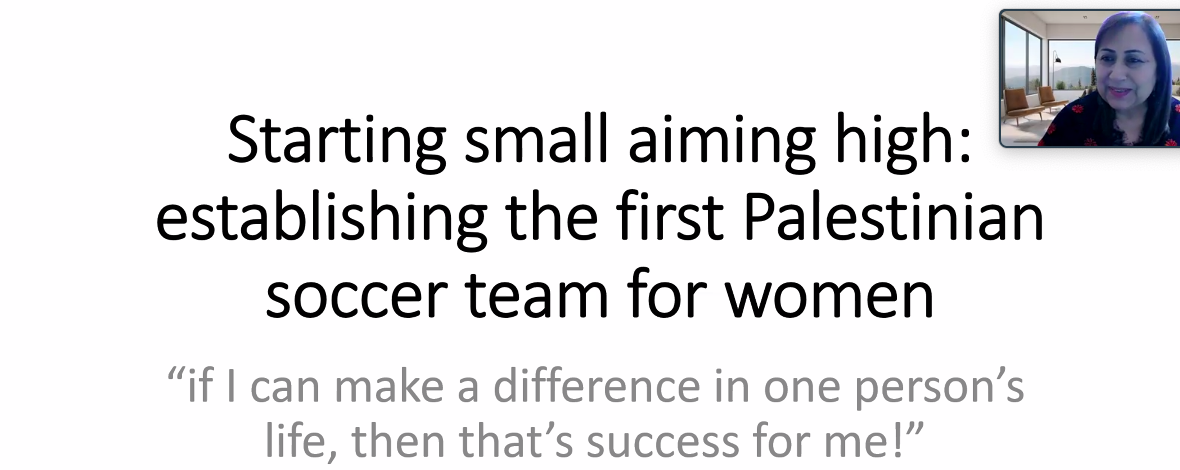Following shortly after International Women’s Day, FISU held its Gender Equality webinar on 11 March welcoming attendees from its Gender Equality Committee, national and continental university sports federations, and FISU Student Ambassadors.
FISU President Leonz Eder welcomed participants and helped set the tone for the session by commenting, “Everyday life reminds us of the progress that still needs to be made regarding the representation of women in sport both on and off the field.” He was followed by FISU Executive Committee member and Chair of the Gender Equality Committee Dr. Rosaura Méndez. She thanks attendees for the work done to date and noted that equality isn’t just a fundamental right but is a catalyst for a more prosperous world.
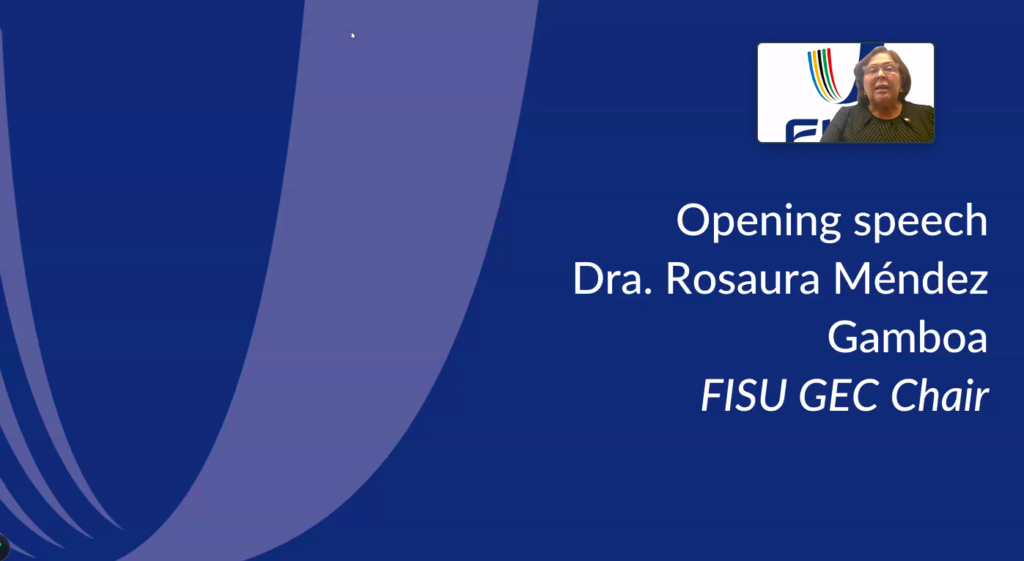
Michelle Tanner, Vice-Chair of the FISU’s Gender Equality Committee, moderated the session and spoke to FISU’s work on the topic. This includes the use of UN gender equality guidelines helping ensure FISU has correct policies, procedures, promotion, and programmes that support women on and off the field. She also noted an interesting example that for the first time, the Chengdu FISU Games of last summer saw countries each have two flag bearers for parade of nations, one female and one male.
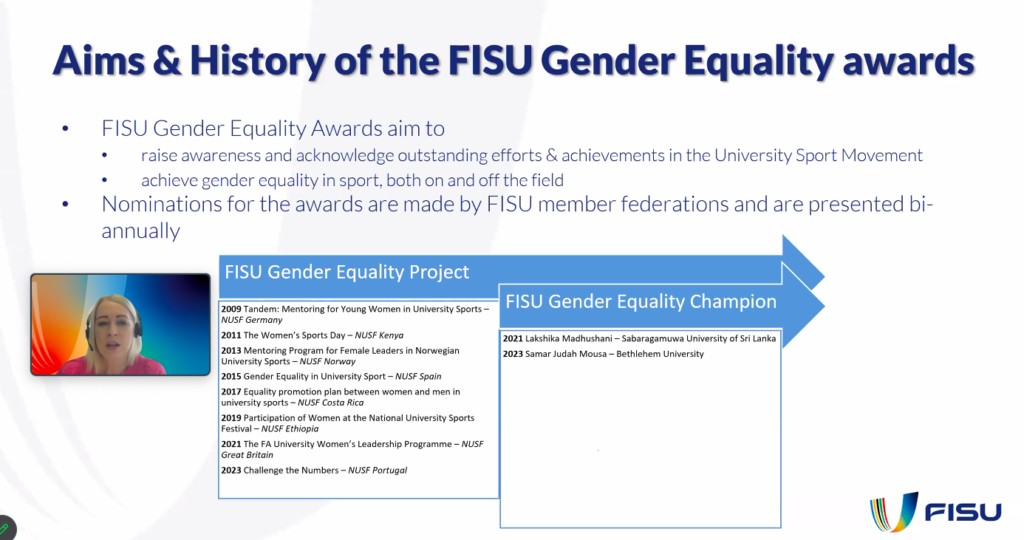
This led into presentations by the recent winners of FISU’s Gender Equality Awards. Samar Mousa, winner of the Gender Equality Champion Award, spoke about her experience leading the development of Palestine’s first women’s soccer team, while Head of Athletics at Bethlehem University. Her aim was to provide young women opportunities to live their potential, to have their dreams come true, and to explore new things in life through football. Despite lacking financial support and resistance from conservatives, she persevered. She worked directly with families to convince them to enable girls to play and helped navigate Israeli checkpoints to ensure they could play games. FIFA granted them recognition in 2008 and multiple documentaries since have featured the team. All testaments to the importance in Palestine, and around the world, of inclusion for girls and women in sport.
The Portuguese Academic Federation of University Sport (FADU) was recognised with the FISU Gender Equality Project Award for their ‘Challenge the Numbers’ initiative. FADU Secretary General Arménio Coelho presented to the group and how this initiative had for its main objective to increase participation by women in all facets of sport – 20% growth in student-athlete participation at university events and 15% increase in numbers of delegates, leaders, and coaches. Examples of the work done include a podcast to help inform people of the issues around gender equality in sport, a requirement for teams participating in the Portugal University Games to have even numbers of women and men, as well as the creation of the Seal of Gender Equality in University Sport granted to clubs that demonstrate strong practices in this area.
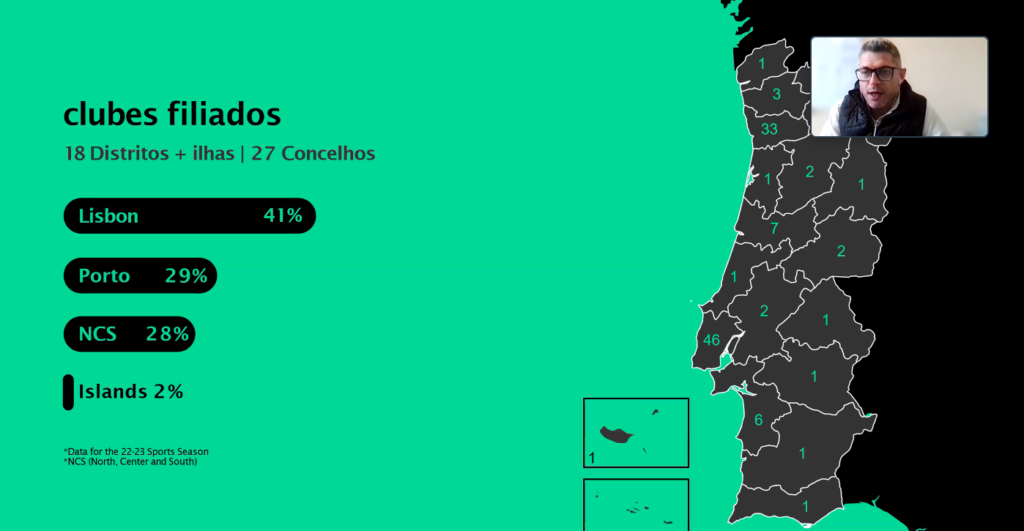
The session was concluded with a presentation from Annamarie Phelps, former Vice-Chair of the British Paralympic Association, Olympic rower, and now Co-Chair Global Executive International Working Group on Women and Sport (IWG). A significant part of her message centred on the need to fix the sport system that has instead often asked women to adapt to it. This means the creation of policies from government levels down that support women’s sport.
She highlighted five key themes important in creating gender equality, diversity, and inclusion:
- Participation – there still exists polarization in many parts of the world around women taking part in sport
- Leadership – while at the Paris 2024 Summer Olympic Games there will be athlete gender parity, only 13% of coaches participating will be women
- Resources – equal access to resources (financial and other) is important, including aspects such as ensuring prime times at sports facilities is available to all
- Portrayal – ensuring greater visibility to the general public of women’s sport
- Safe sport – increasing the understanding of the existence of hazing and sexual harassment in sport, as well as the need to ensure mental health supports
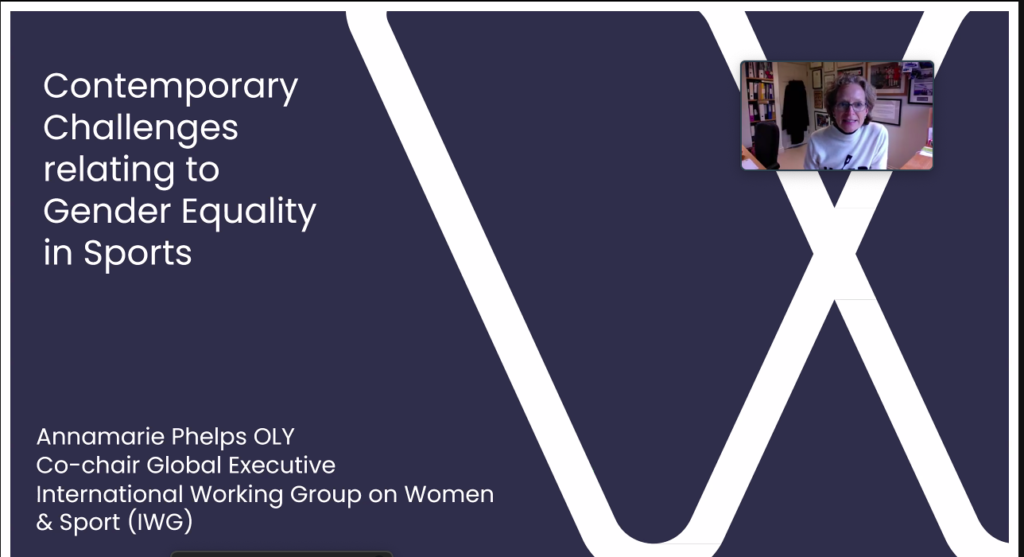
Phelps concluded by speaking of some of the health barriers in women’s sport. She highlighted the need to commission research focused specifically on those topics, with only 6% of sport medicine research in 2022 being done on women and girls. An example was noted to highlight the challenges of limited research as in the recent FIFA Women’s World Cup 30 athletes were out with ACL injuries, in part due to minimal studies on the needs of women and their football cleats.
Gender equality work needs to continue, though great strides have been made, some of which were highlighted during this informative, and important FISU webinar.
